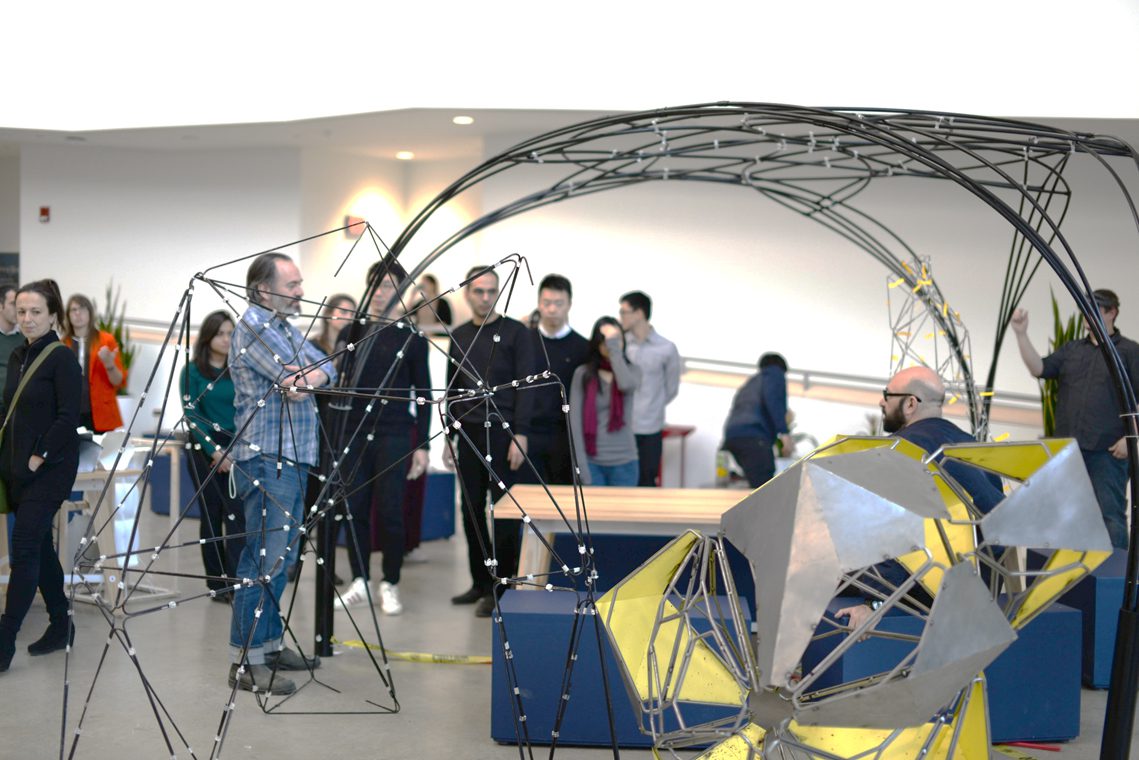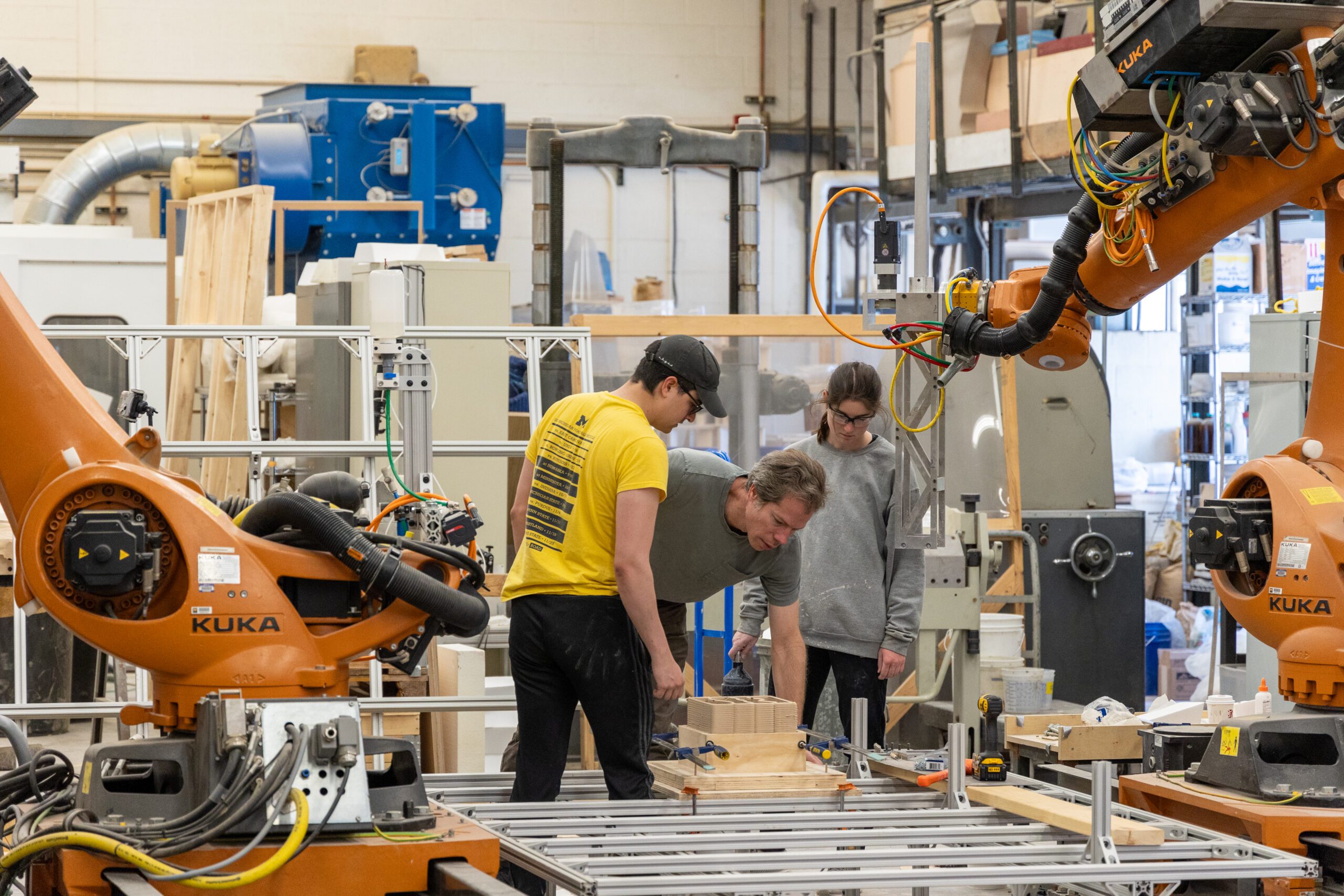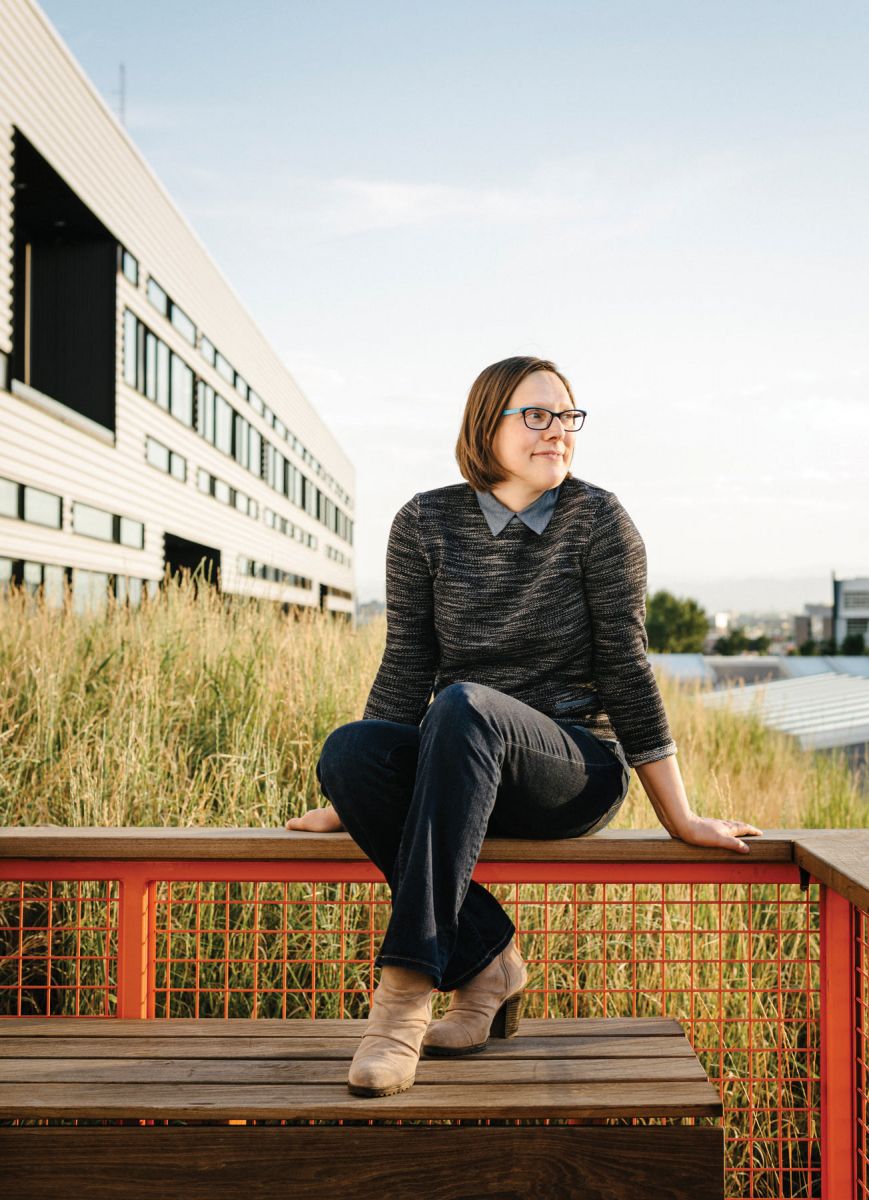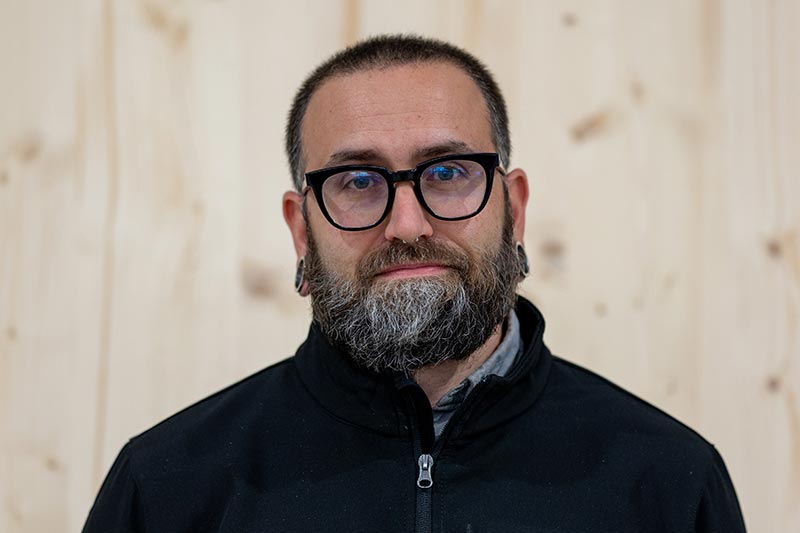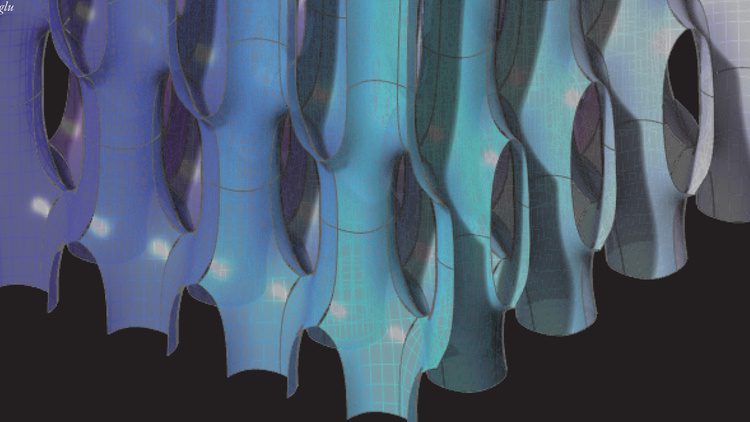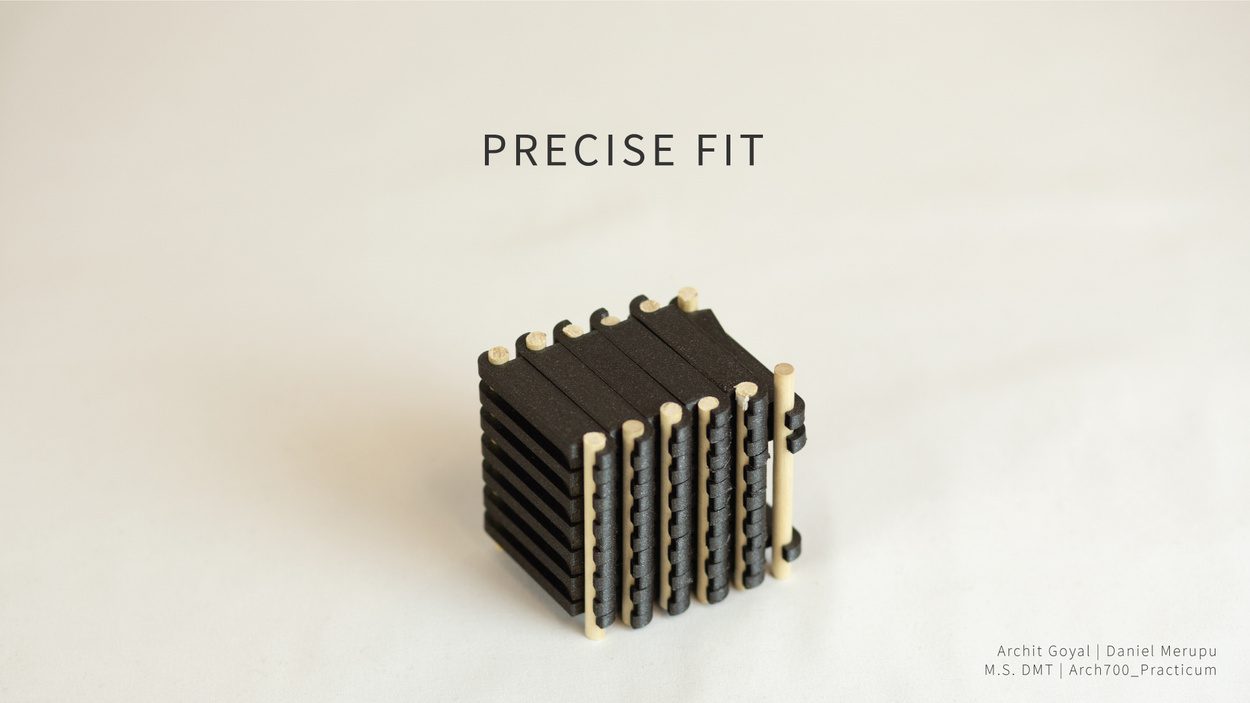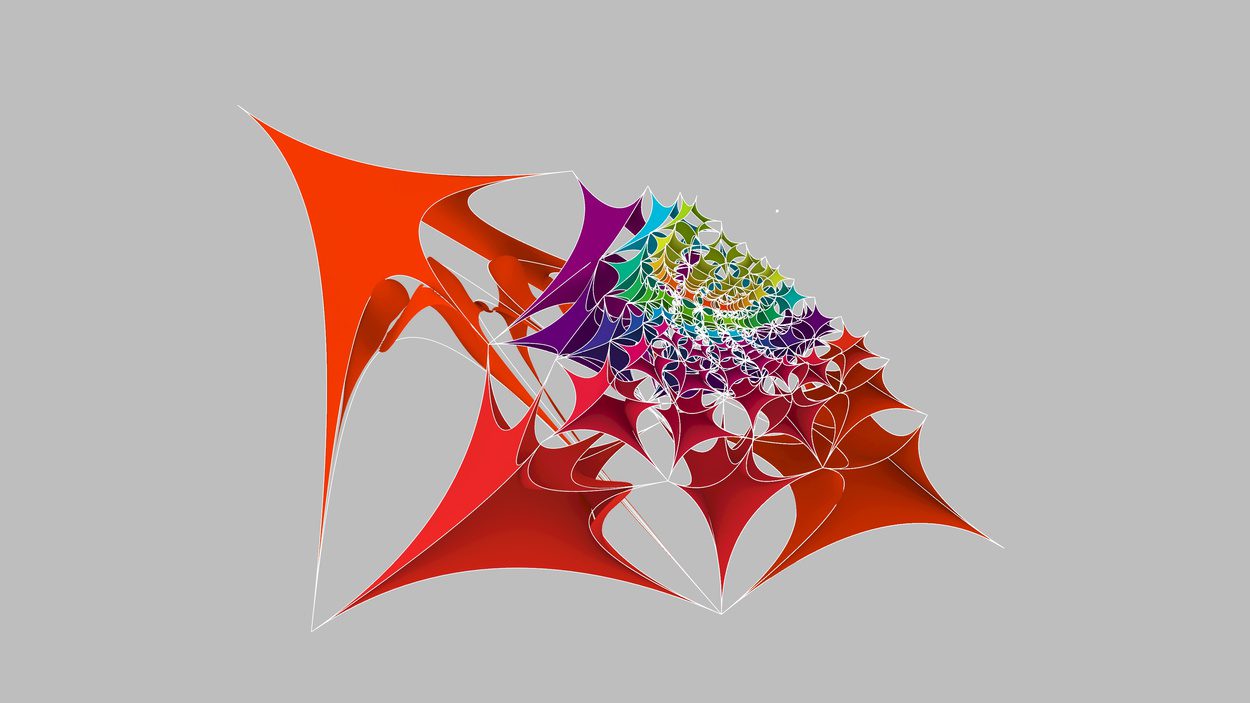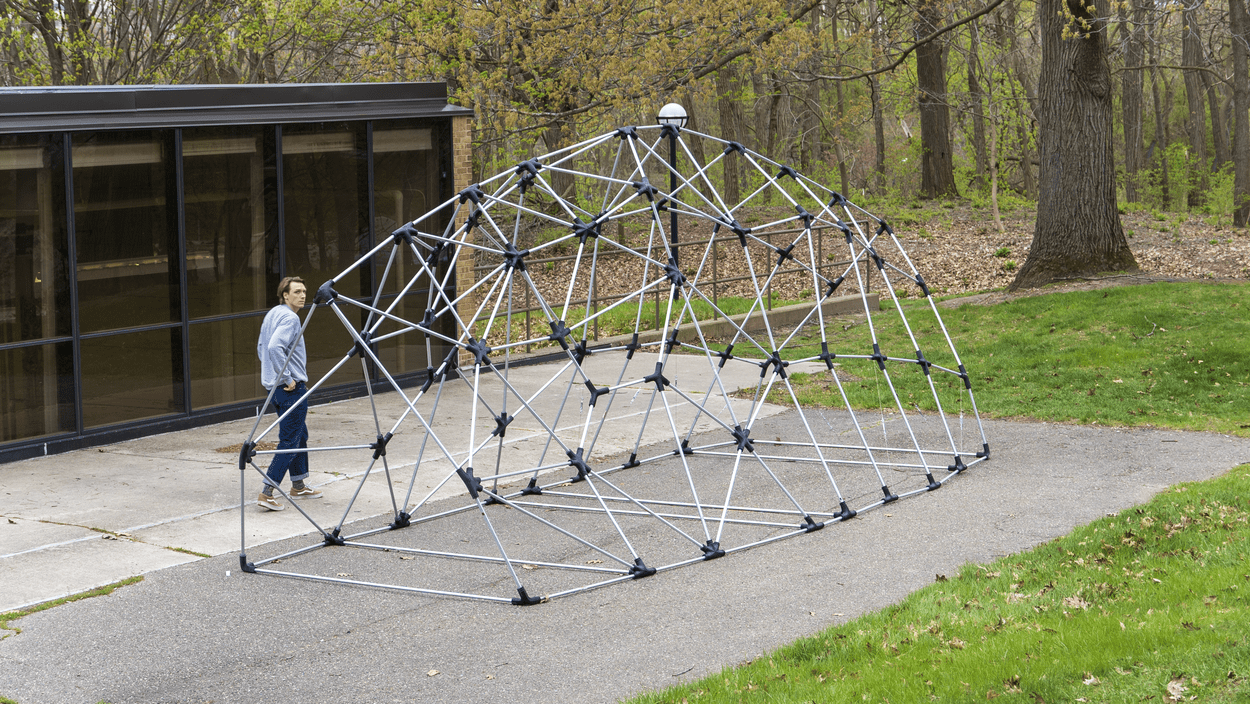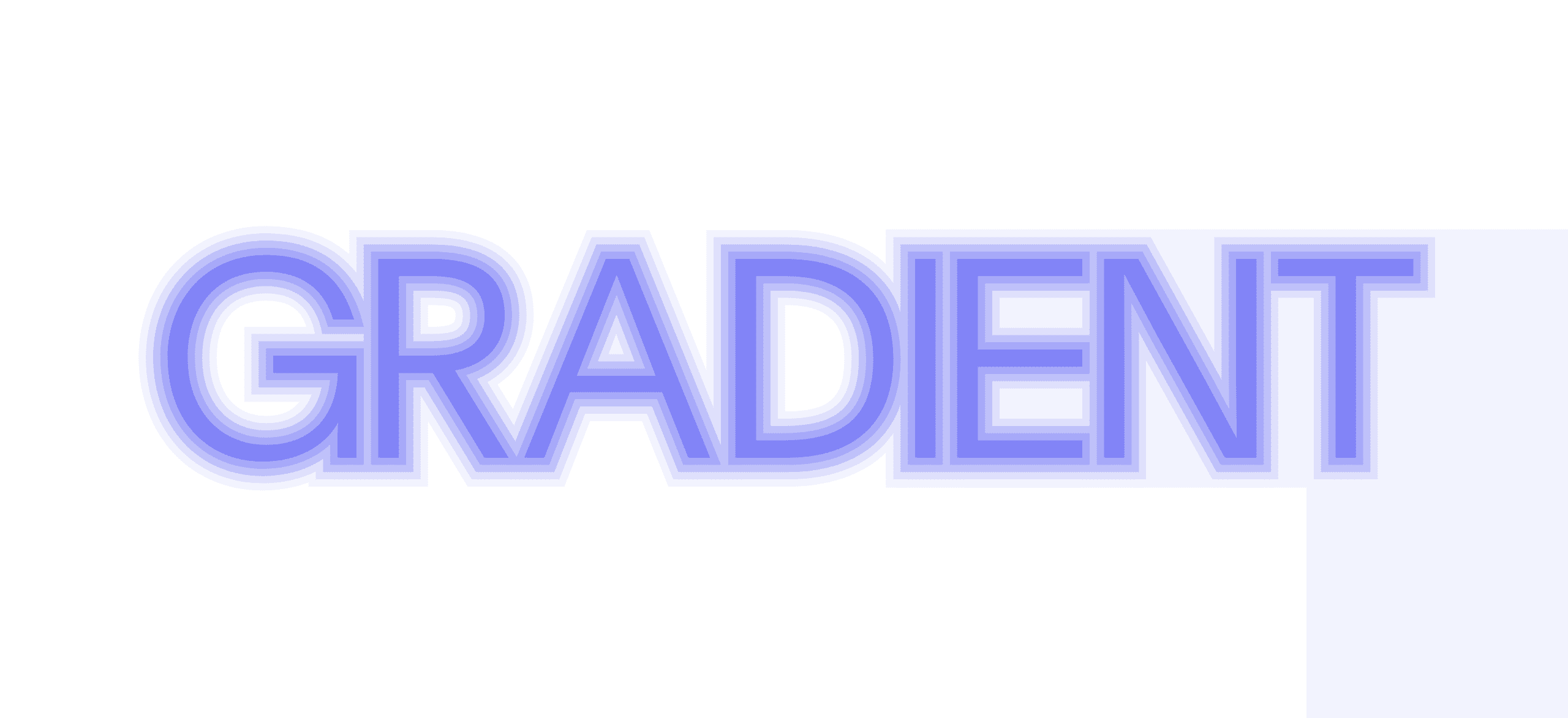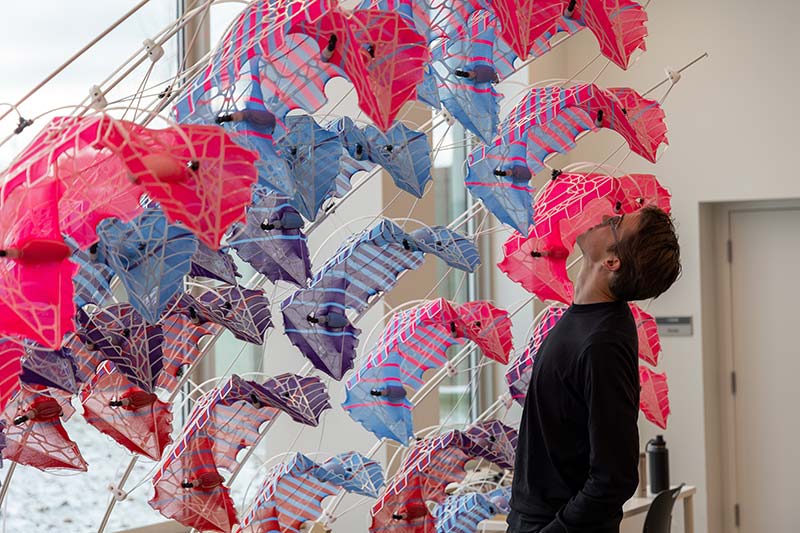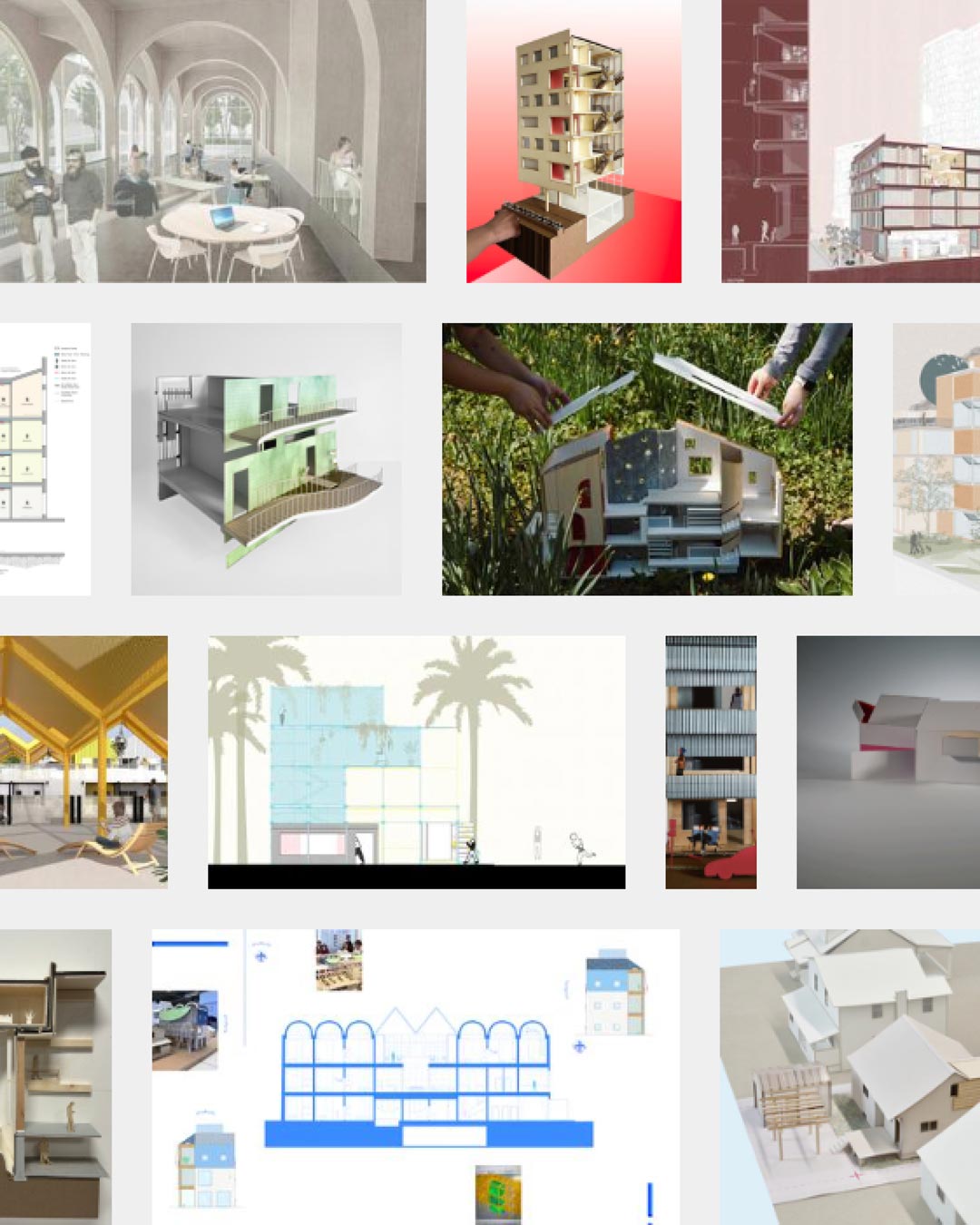This degree is not accepting applications for Fall 2026.
Master of Science: Digital and Material Technologies

Our Master of Science: Digital and Material Technologies (M.S.D.M.T.) degree is designed to prepare you to understand the ordered relationship of people and their environment and to translate this order into design that enriches the human experience. You will focus on the materials, technologies, and production logics that are shaping and challenging the built environment and related industries, while exploring the multiplicity and changing nature of future roles open to the architect and designer.
Offered by Taubman College and the U-M Rackham Graduate School, the M.S.D.M.T. degree is an advanced, post-professional, three-semester degree in Architecture Design and Research with a concentration in Digital and Material Technologies. You will focus on cutting-edge research in advanced fabrication techniques, digital design and material systems, and the interactions of matter and energies on all stages of design and production.
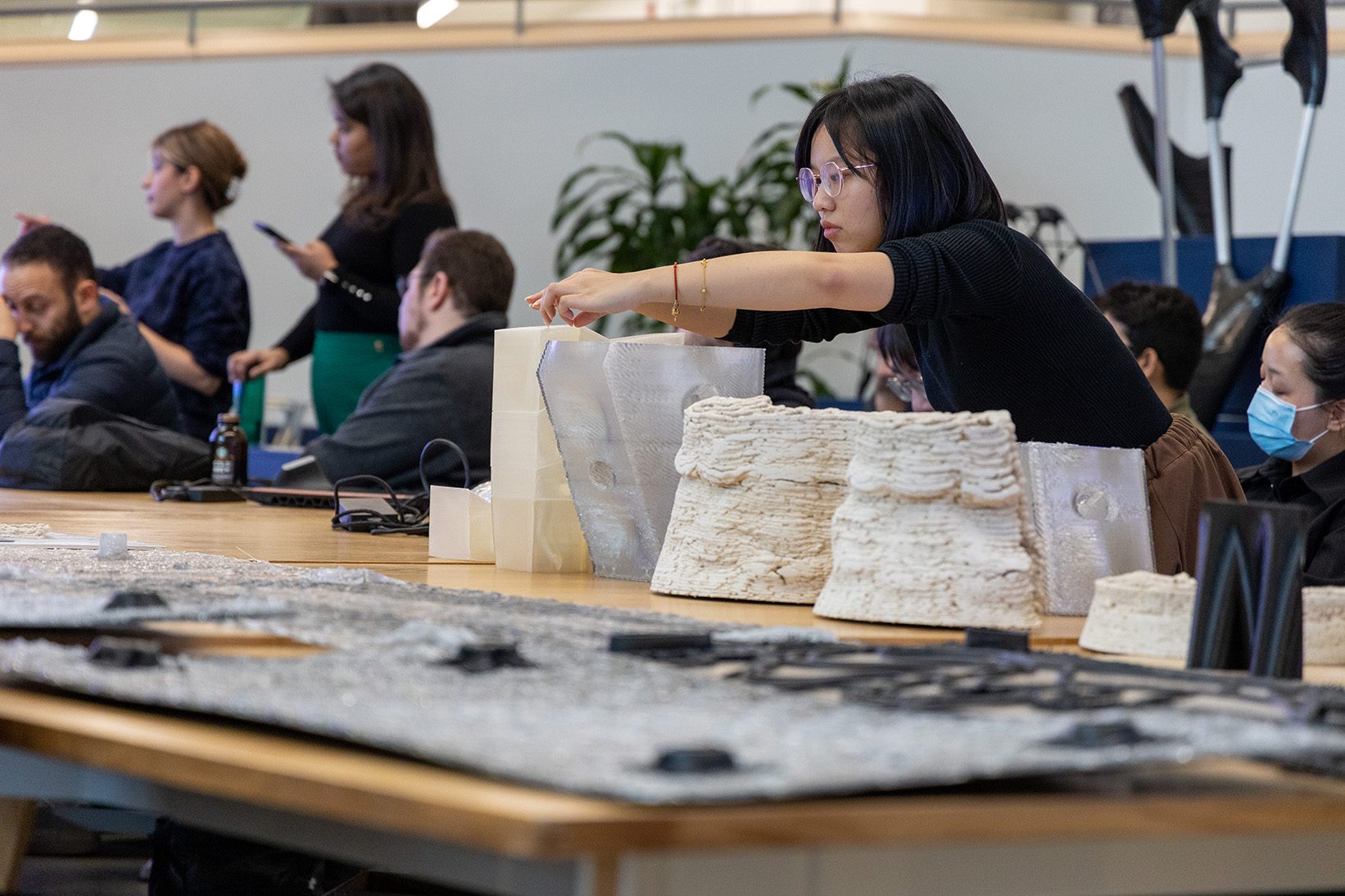
You also will explore the relationship to digital and material design and output, providing you with an opportunity to innovate within a context where design, composition, and modes of production for scales from wearables to buildings have radically changed due to an increasing sophistication and pervasiveness of computationally driven design and fabrication technologies.

Intellectually Diverse Faculty
Our program’s strength is rooted in a collaborative culture of intellectual diversity. You will learn from faculty with a wide variety of expertise and methodologies.
Community and Connections
You will be well-supported by a large and inclusive community of students, faculty, and staff who are knowledgeable, curious, collegial, and just as excited about architecture as you are. They bring a variety of experiences and points of view. They will be your sounding board, your support network, and your friends.






